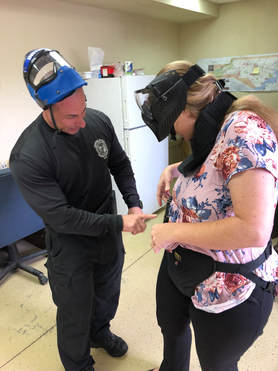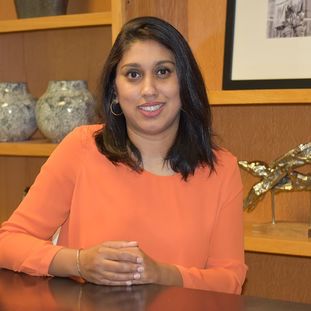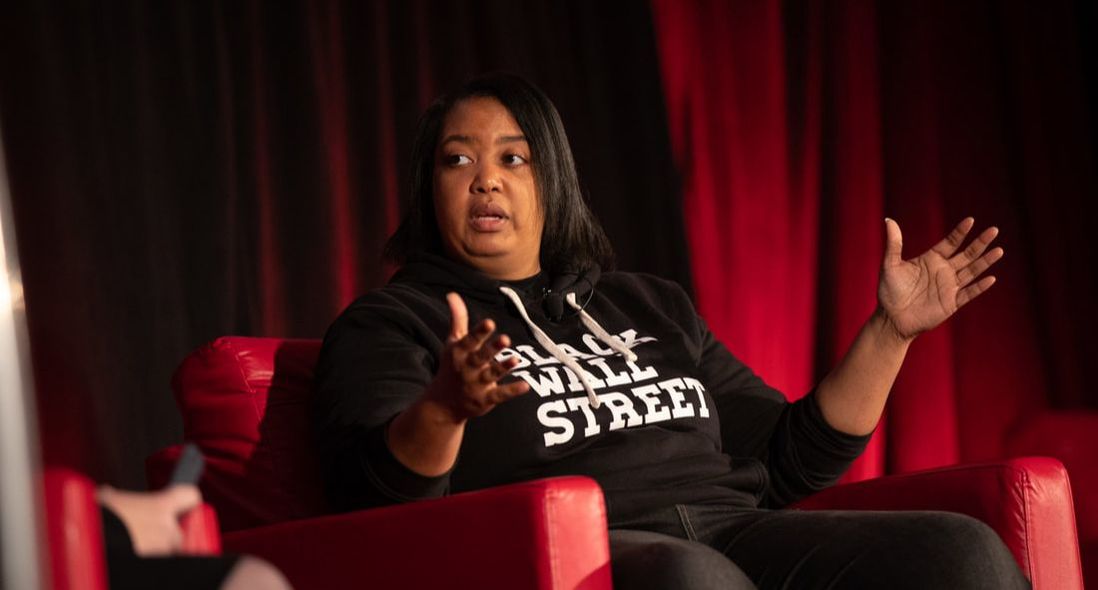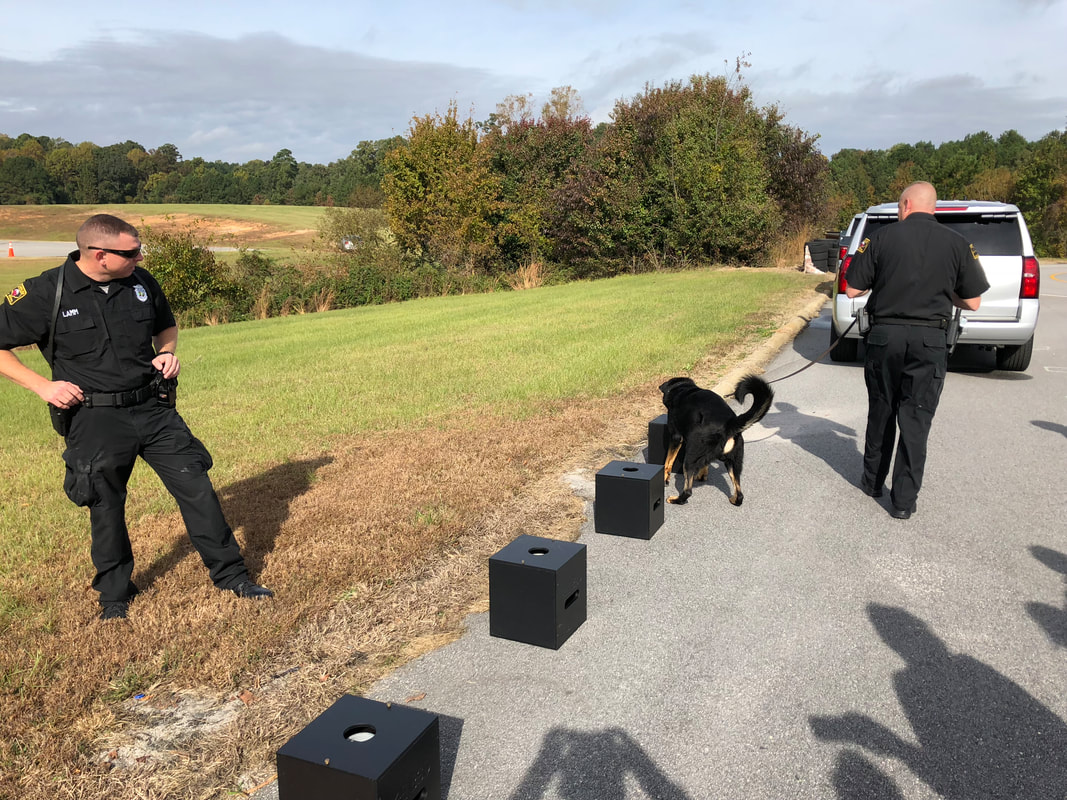|
Use the links below to jump to a section. Arlan Hamilton Breakout Sessions Capstone Conversation Todd Olson
Since its creation seven years ago, the Innovate Raleigh Summit has been a catalyst for progress. During that time, the work done at the summit has led to positive change for the community, including the addition of the direct flight from RDU to San Francisco. The organization’s co-founders have seen that progress develop firsthand.
Mary-Ann Baldwin and Terri Lomax know how the organization has been a collector and convener of innovative enterprises and thinkers in the Triangle region. Both opened the 2018 Innovate Raleigh Summit. “We continue to have a bold vision for our future,” said Baldwin. “But a small group of people can’t do this alone. We need all of you to participate today and help us shape the future.” Progress begins with a plan. Baldwin spoke about the importance of that plan. “Take the insight you gain today and help us reach a plan, a plan to be one of the top five innovation hubs in the country,” she said. Arlan Hamilton The opening address led into our morning keynote, called A Bold Vision for the Future. We heard an inspiring talk from Arlan Hamilton, the founder and managing partner of Backstage Capital. She took part in a discussion led by Robyn Tomlin, editor of The News & Observer Publishing Company. Hamilton went from being homeless to a venture capitalist whose fund has invested more than $5 million in companies that have at least one founder who is a woman, person of color, or LGBTQ. Her latest initiative is a $36 million fund dedicated exclusively to black women founders. She remembered growing up in Texas and always wanting to run her own business. “There wasn’t a day that went by where I didn’t have some idea for some company,” Hamilton said. That includes an operation where she started selling candy in the third grade. “I ruled the third grade,” she remembered. Hamilton discussed starting a magazine in her 20’s. “It was really difficult to launch, but when it was humming, it was really fulfilling,” she said. “I don’t know how to do things half way.” She told the audience that it is never too late to start a business or pursue a dream. “I never felt that I couldn’t have a million-dollar venture firm while I was on food stamps,” said Hamilton. Hamilton, a black lesbian with no college degree or formal educational background, overcame the adversities she has faced in life. She discussed how her firm represents “underestimated” founders. “People like to use the terms ‘underrepresented’ or ‘underprivileged.’ But there is a negative connotation there,” said Hamilton. “People are underestimated. When you underestimate me, you don’t see me coming.” Hamilton also talked about her impressions of the Triangle. “I don’t see a lot of people who are closed off here,” she said. “Place or community is everything when it comes to the success of a startup. But you have to back community up with capital.” Nationally, Hamilton said .2 percent of all venture capital goes to black women. “That doesn’t jive with me,” she said. She recommended that companies should have a diverse team from day one. “I would hire a ton of people of different age ranges and different backgrounds,” said Hamilton. “It’s about your competitive edge. They’re seeing things that you aren’t seeing and they’re unlocking the potential for you to make more money.” As she walked off the stage, Hamilton got a standing ovation from the Innovate Raleigh Summit audience. What a great way to kick off the day! top Breakout Sessions After the keynote, the breakout sessions got underway. There were four sessions, and audience members could select which two they attended. At The Future of Place, we heard from Kate Pearce, senior planner for the City of Raleigh’s Dorothea Dix Park, and from Leah Burton, director of NC State University’s Centennial Campus Partnership Office & Industry Alliances. Leigh-Kathryn Bonner, founder and CEO of Bee Downtown, moderated. Pearce talked about the “unparalleled opportunity” there is with Dorothea Dix Park. “It’s about connecting people to place and creating quality of life,” she said. “I encourage you to become a part of the movement and the momentum behind Dorothea Dix Park.” Burton talked about the importance of the culture surrounding a thriving innovation district. At The Future of Funding, we heard from David Gardner, founder and managing partner of Cofounders Capital, Rep. Cynthia Ball, North Carolina General Assembly, and from Aalok Kanani, director of the Capital Coalition. Jon Hayes, founder and CEO of RewardStock, moderated. “Don’t look at raising capital as a problem, look at it as an opportunity,” Gardner advised. “Think about who would be the best people to go with me on this journey.” Hayes talked about the importance of pairing up with the right investor. “Building a business from scratch takes more time than you think it will take and will be more challenging than you think it will be,” he said. “That’s where an investor can be very helpful. They’ll bring their expertise and their guidance.” At Innovating the Talent Pipeline, we heard from Dr. Paulette Dillard, president of Shaw University, Richard Boyd, founder and CEO of Tanjo, Inc., and Geoff Coltrane, senior education advisor to the Office of North Carolina Governor Roy Cooper. Karl Rectanus, co-founder and CEO of LearnPlatform, moderated. For Boyd, the question of innovating the talent pipeline came back to funding. “We’ve got leadership, talent, and education,” he said. “We just need the money component.” Boyd asked, “What kinds of people do we need to cultivate and make for this future that we can’t predict?” Coltrane pointed out that 85 percent of the jobs for 2030 haven’t even been invented yet. In the remaining session, The State of Our Innovation Ecosystem, we heard from Chris Heivly, entrepreneur in residence of Techstars, and Sig Hutchinson, vice chair of the Wake County Board of Commissioners. Hutchinson discussed the importance of the Chamber’s efforts behind the promotion of diversity, equity, and inclusivity in workplaces across the region. “The Chamber has been a real leader on this,” he said. “We all win when everyone wins. We all succeed when everyone succeeds.” Heivly talked about the importance of discussing the startup system anywhere you go. “It’s about awareness,” he said. “You will find somebody who didn’t know about it.” top Capstone Conversation Our afternoon began with an address from Jason Widen, co-founder of HQ Raleigh and the Board Chair of Innovate Raleigh. He mentioned how the vision of HQ is to inspire entrepreneurs to grow and deepen their impact. Widen’s address led into the capstone conversation. Our president and CEO, Adrienne Cole, took part in the conversation along with Scot Wingo, founder and CEO of Get Spiffy. Brooks Bell, founder and CEO of Brooks Bell, moderated. Wingo said there is an “awesome” marketing strategy behind promotion the region. “Every month, we’re a top five this, a top 10 that,” he said. Cole pointed out how there is an intentional strategy behind telling our story. In partnership with the City of Raleigh, Wake County Economic Development manages a national media campaign with a place-marketing agency to bring brand awareness to Raleigh and Wake County. WCED is a program of the Chamber. “I’m always bowled over by what is happening in this market,” she said. “We’ve got a really great story to tell.” Cole also discussed the importance of working with the Wake County Public School System on the talent pipeline. “We need to prepare our kids for jobs that don’t exist yet,” she said. “There also is an opportunity for entrepreneurs to work with the school system on the talent pipeline. It doesn’t have to be just the large companies.” Cole also told the audience that the venture funding of startups across the state is up 154 percent so far this year. top Todd Olson The closing keynote was from Todd Olson, the founder and CEO of Pendo, a product cloud that provides user insight, user guidance, and user communication for digital product teams. The company has grown in the last five years from a five-person team housed inside HQ Raleigh to one of the most well-funded companies in North Carolina with more than 200 employees. “I’d like to think all of us can do it if we focus on the fundamentals,” said Olson. “The fundamentals of any great business start with the market. The number one company killer is a lack of market.” He encouraged entrepreneurs to stand out and think about the big picture. “If you set your vision around something near-term focused, you’ll run out of vision,” said Olson. “If no one else is thinking about doing what you’re doing, then there’s not a big market for it. None of you should be scared of competition. The key is to understand how you’re different.” He said that great cultures make great companies. “We have a great strategy at Pendo but our culture is what drives the business,” said Olson. We want to join with our partner, Innovate Raleigh, in thanking the sponsors and everyone who made this year’s Innovate Raleigh Summit such a success. The official Twitter hashtag, #IRSummit18, was the top trending topic in Raleigh for much of the day. The ideas and insight shared at the summit are an integral part of the three major themes of Innovate Raleigh: attracting talent, funding, and building a vibrant and inclusive community. What we learned and accomplished at the summit will go a long way toward building an even stronger entrepreneurial ecosystem in Raleigh.
0 Comments
 By Beau Minnick Raleigh Chamber 6,149 days. That’s nearly 17 years. That’s also how long Greg Taylor was in prison for a murder he didn’t commit. Taylor certainly has a story to tell. He’s been the subject of numerous articles and news stories, along with a WRAL documentary, also called 6,149 Days. As a part of Leadership Raleigh 37’s Law Enforcement Day, we were privileged to hear in person from Taylor about his time in prison and how his case impacts the justice system. Speaking to our class, Taylor was joined by Chris Mumma, the executive director of the North Carolina Center on Actual Innocence. She took up his case and worked to get Taylor exonerated. In 1993, Taylor was convicted of the murder of a woman whose body was found about 100 yards from where Taylor’s SUV had gotten stuck in the mud near downtown Raleigh. Mumma said there was a blood spot inside the wheel well of the SUV. She said the blood was later determined to not even be human, but, at the time, it led to his conviction. She told us how Taylor’s case and the cases of other exonerated defendants highlight the need for more improvements in the justice process. As for Taylor, since being released in 2010, he has been enjoying life with his family. He told us that he had been trick-or-treating with grandchildren for Halloween the night before. He recalled his time in prison, constantly walking around asking the question to himself, “Why am I here?” While in prison, he ran the library, selecting books for other inmates to read. “I got to know the types of books each inmate liked and would select what they would read based off their interests,” he said. We all thanked Taylor for sharing his incredible story, one that was eye-opening for all of us. But, that was just one part of our Law Enforcement Day. We began with a presentation from an agent with the Drug Enforcement Agency. He talked with us about the impact of illegal drugs, both nationally and in North Carolina. Nationally, he said there were about 74,000 overdose deaths in the U.S. last year. That is about five times the number of murders that took place nationally during the same time frame. He showed us how some suspects would hide drugs they were attempting to smuggle. In some cases, the drugs were built into vehicles. We also heard from an officer with Raleigh Police, who works in the gang suppression unit. She told us how gangs in Raleigh will use their own language and even have their own alphabet. “These gangs are creative and intelligent,” she said. “They have a detailed organizational culture.” Her stories made us aware of things happening in our own city that we simply did not know. We then boarded a bus and went to the North Carolina State Highway Patrol Driver Training Center. We witnessed an exercise where there was a simulated police chase. The trooper in pursuit used a PIT maneuver to cause the fleeing driver to lose control and stop. Next, we got hands on! We got to participate in a training exercise where we attempted to arrest a suspect who was wanted for outstanding warrants. One of the Highway Patrol members acted as the suspect who threatened us when we tried to arrest him. It was our job to determine when would be the appropriate time to draw our guns and fire. We didn’t all get to participate in the exercise, but from what I’ve heard, not too many of us will be heading to the academy anytime soon. We also saw the K9 units do what they do best and find objects that were hidden. Some of us got to take a ride in a vehicle that drove through a simulated rain storm. We learned what to do when our cars lose control. We also got up-close experiences with a motorcycle course and seeing a Highway Patrol helicopter. It was alarming, though, when we heard how the Highway Patrol has a shortage of troopers across the state. Even as our state continues to grow rapidly, the Highway Patrol members who spoke with us said there is a shortage of 200 troopers. Later in the day, we also learned about the difficulties in recruiting and retaining correction workers to staff our prisons. The last stop of our day was a tour of Central Prison in Raleigh. We learned how Central Prison is the only maximum security prison in North Carolina. It is the admission point into prison for men who have been sentenced to 20 or more years. It also houses the men in North Carolina who sit on death row. I spoke with one inmate who was working in the prison canteen. Later, I found out he is on death row. Inmates in the prison will work in a variety of jobs, including cooks, janitors, barbers, and clerks. They do get a small salary in prison, which they can use to purchase snacks and other items. Central Prison has its own medical and mental health center. It houses Bible studies and worship services, along with recreation areas. Needless to say, security is very tight inside of Central Prison. We closed out our day hearing directly from some of the inmates. Several shared stories with us how they have young children. One inmate told me, every chance he gets, he tells his children to make the right choices in life. We’ve heard stories from previous Leadership Raleigh participants how the Law Enforcement Day would be one to remember. Our day did not disappoint! It was an exhilarating, yet thought-provoking day. On behalf of the rest of my class, I know we want to thank everyone who planned this day, and those who shared their stories and insight with us. We can’t wait to see what is next at our Human Services Day in December.  Samreen Salim joined our team in October, working with our top investors and Board of Advisors members. She loves getting to know new people and says working at the Chamber is a perfect fit. Originally from Bangladesh, Samreen moved to the U.S. when she attended college. She graduated from Adrian College in Michigan. After graduation, Samreen moved to Toronto, where she worked in banking, including seven years at TD Canada Trust Bank. More than six years ago, Samreen and her husband moved to the Triangle. They have two young children and love how much there is to do in the area. On weekends, you’ll find them going to the movies, or to our many museums and parks. |
AuthorGreater Raleigh Chamber of Commerce Archives
July 2024
Categories
All
|
|
Greater Raleigh Chamber of Commerce
800 S. Salisbury St. Raleigh, NC 27601 |







 RSS Feed
RSS Feed